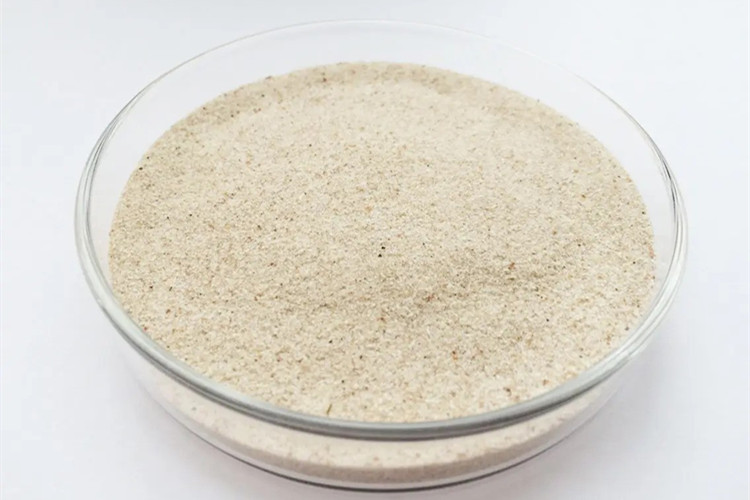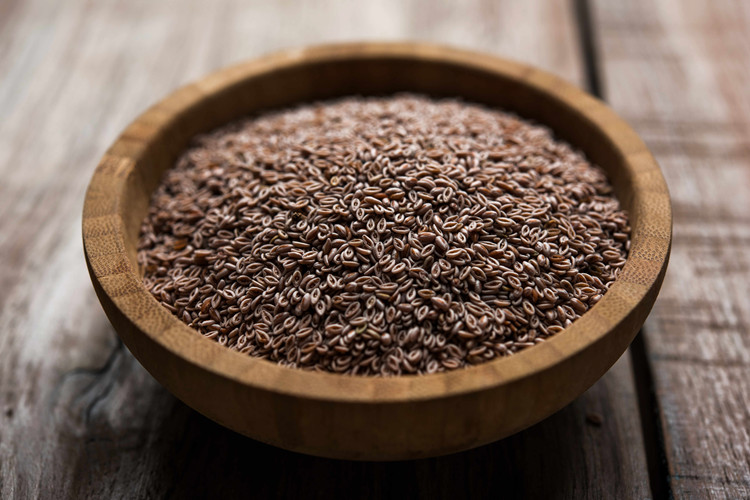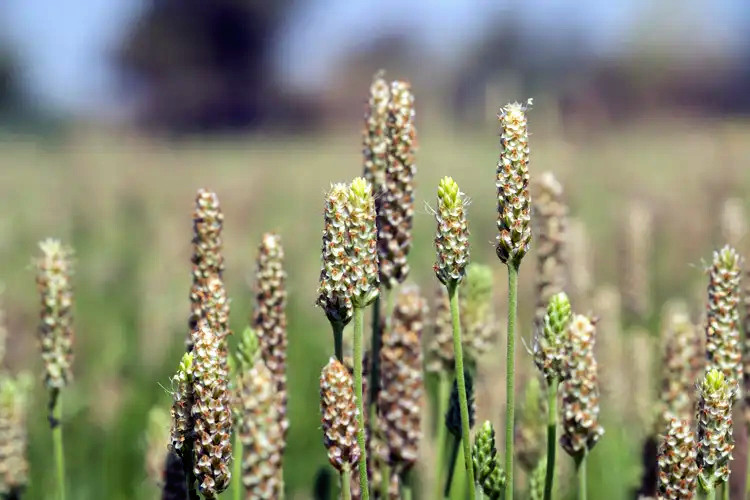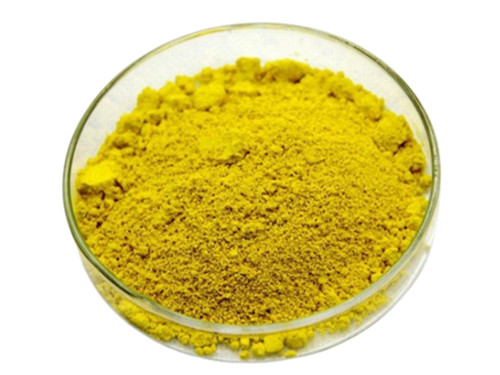In recent years, meal replacement foods have become popular, and weight-loss enthusiasts are looking for solutions that taste good and won’t make them fat. From inulin, cereal, graham crackers, multigrain instant noodles, these are based on high dietary fiber, through satiety, low sugar and low GI to achieve daily metabolic caloric difference. Psyllium seed husk has always been considered an excellent raw material for meal replacement, it has a colloid component with high dietary fiber, 10 times the water absorption expansion can make people feel full, and is widely used in meal replacement foods.
What’s psyllium husk powder?
Psyllium husk powder is a fiber supplement derived from the seed husk of Plantago ovata, which is commonly known as blond psyllium, desert Indian wheat, or buckwheat, is an edible seed that comes from the Plantago lanceaefolia plant. Plantago ovata is native to India, Iran, Pakistan and other countries, and is currently cultivated in many countries such as France, Spain, the Mediterranean region and Northwest China.
The shell of psyllium husk is a thin white, light-brown layer outside the epidermis of its seed, which makes up 25% of the total seed mass. The total dietary fiber content accounts for about 80%, forming a transparent colorless gel after water absorption, and its volume increases by 10 times or more. Plantago ovata is the most gelatinous fiber of all Psyllium plants. The ratio of soluble dietary fiber to insoluble dietary fiber is as high as 7:3. Other nutrients in psyllium husk mainly glucoside, protein, polysaccharide, vitamin B1 and choline.
Benefits of psyllium husk powder
Treat chronic functional constipation
The Plantago ovata husk is rich in dietary fiber and has strong water absorption, which increases the volume of stool after water absorption and expansion, maintains the moisture and softness of stool, stimulates the reflex contraction of intestinal wall, and promotes normal intestinal emptance. Psyllium husk is also a natural laxative, it can quickly absorb intestinal water, reduce intestinal osmotic pressure and relieve diarrhea,also aiding in managing cholesterol levels.
Promote probiotic growth
Psyllium shells are rich in hemicellulose, which can not be digested by the human body. Entering the intestine can promote the growth of probiotics in the intestine and reduce the number of harmful bacteria.
Natural “blood sugar stabilizer”
The shell is digested slowly in the gastrointestinal tract, which can slow down the absorption of carbohydrates in the small intestine, so that sugar is slowly released into the blood, which can reduce blood sugar shocks and prevent fat synthesis.
Safety of psyllium husk powder
FDA: In 1998, the United States Food and Drug Administration (FDA) stated that the fiber soluble psyllium husk powder can reduce the risk of cardiovascular disease. In 2014, the FDA approved psyllium husk with a restrictive health claim: Psyllium husk may reduce the risk of type 2 diabetes. In May 2016, the US FDA approved Psyllium husk to enter the dietary fiber list.
Eu: In 2013, the Herbal Medicine Committee (HMPC) of the European Medicines Agency (EMA) issued a report that increased dietary fiber intake with Psyllium husks can be used to improve habitual constipation in children and adults over 6 years of age.
Applications of psyllium husk powder
Psyllium husk is rich in soluble dietary fiber and insoluble dietary fiber, which is widely used in food and beverage, health food and pet food. For example:
- Solid drinks
- Drinks
- Meal replacement chocolate
- Baked goods
- Meat products substitute
- Pet food
- Health food
- Dandelion Extract: What It Is, Benefits, Uses and Side Effect - April 23, 2024
- Is Berberine Extract Help For Weight Loss? - April 11, 2024
- Why Is Pysllium Husk Powder A Popular Meal Replacement Ingredient? - April 3, 2024





